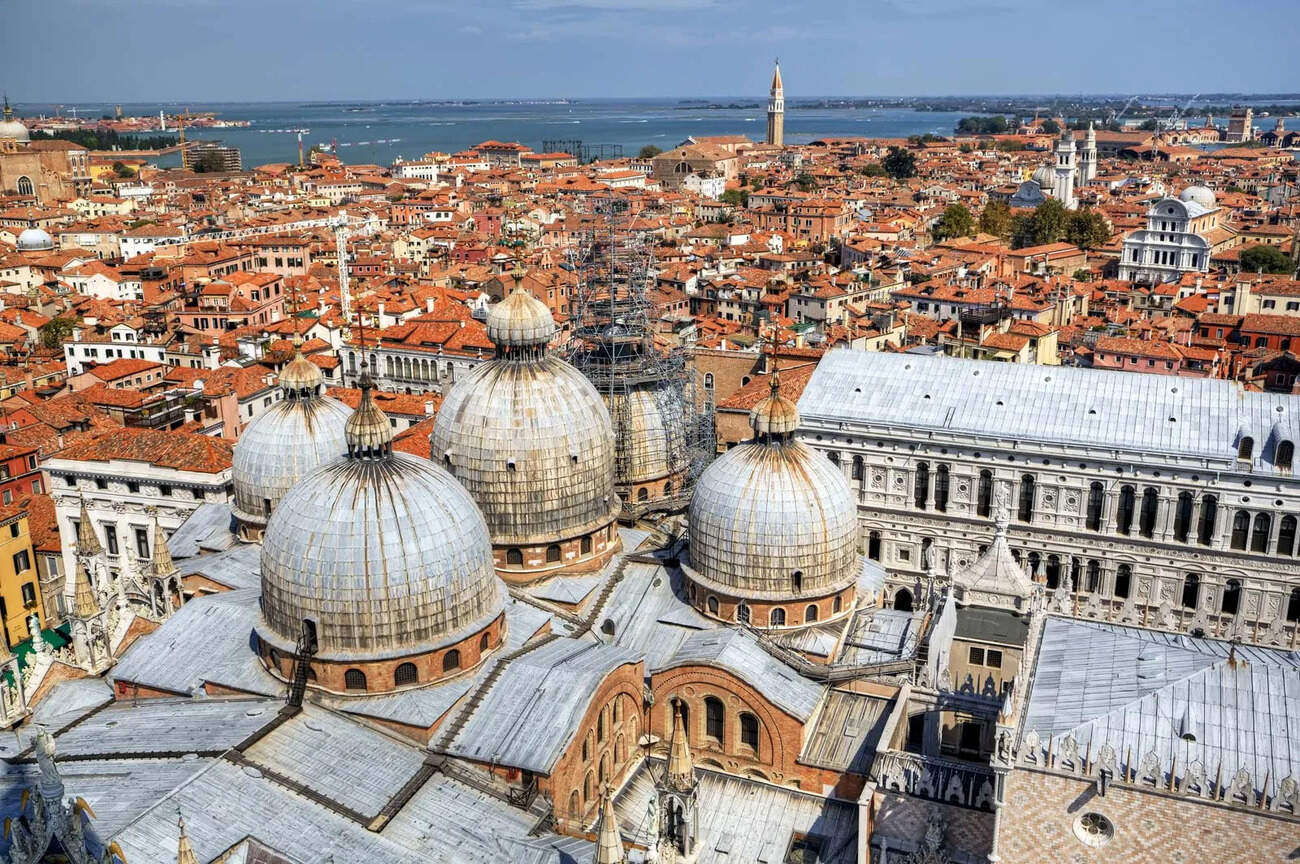
Ever wondered what makes Italy so special? From its rich history to mouth-watering cuisine, Italy offers a treasure trove of fascinating facts. Did you know Italy is home to the most UNESCO World Heritage Sites in the world? That's right, with 58 sites, it leads the pack. Italy also gave us the piano and the thermometer. Its boot-shaped peninsula boasts stunning coastlines, ancient ruins, and vibrant cities like Rome, Venice, and Florence. The country’s love for art is evident in masterpieces by Michelangelo, Leonardo da Vinci, and Raphael. Plus, Italians consume over 60 pounds of pasta per person annually! Whether you're a history buff, food lover, or art enthusiast, Italy has something for everyone. Buckle up as we dive into 60 intriguing facts about this captivating country!
Key Takeaways:
- Italy's rich history spans from the founding of Rome in 753 BC to the eruption of Pompeii in AD 79, preserving a snapshot of Roman life. From art and culture to cuisine and geography, Italy's influence is undeniable.
- Italy's contributions to the world are vast, from its iconic art and fashion to its rich literary and musical heritage. The country's innovations, sports culture, and architectural marvels continue to inspire and captivate people worldwide.
Italy's Rich History
Italy, a country with a history spanning thousands of years, has countless fascinating facts. Let's dive into some intriguing details about this beautiful nation.
- Rome was founded in 753 BC by Romulus. Legend says he and his twin brother Remus were raised by a she-wolf.
- The Roman Empire was one of the largest empires in history, covering much of Europe, North Africa, and the Middle East.
- Venice was a major maritime power during the Middle Ages and Renaissance, known for its grand canals and architecture.
- Pompeii was buried by a volcanic eruption in AD 79, preserving a snapshot of Roman life.
- The Colosseum in Rome could hold up to 80,000 spectators, making it the largest amphitheater ever built.
Italian Art and Culture
Italy has been a hub of art and culture for centuries. From Renaissance masterpieces to modern fashion, Italy's influence is undeniable.
- Leonardo da Vinci painted the Mona Lisa, one of the most famous artworks in the world.
- Michelangelo sculpted the iconic statue of David, which stands in Florence.
- The Sistine Chapel ceiling, painted by Michelangelo, is a masterpiece of Renaissance art.
- Opera originated in Italy, with the first opera house opening in Venice in 1637.
- The Venice Film Festival is the oldest film festival in the world, starting in 1932.
Italian Cuisine
Italian food is beloved worldwide. From pasta to pizza, Italy's culinary contributions are vast and delicious.
- Pizza was invented in Naples in the 18th century.
- Pasta comes in over 600 shapes, each with its own name and purpose.
- Gelato is the Italian version of ice cream, known for its rich flavor and creamy texture.
- Espresso is a staple of Italian coffee culture, served in small, strong shots.
- Tiramisu is a popular Italian dessert made with coffee-soaked ladyfingers and mascarpone cheese.
Italian Geography
Italy's diverse landscapes range from mountains to beaches, offering something for every traveler.
- The Alps form Italy's northern border, offering world-class skiing and hiking.
- Mount Vesuvius is the only active volcano on mainland Europe.
- The Apennine Mountains run down the length of the Italian peninsula.
- Lake Garda is Italy's largest lake, known for its clear waters and scenic views.
- The Amalfi Coast is famous for its stunning cliffs and picturesque towns.
Italian Language
Italian is a beautiful and expressive language, spoken by millions around the world.
- Italian is a Romance language, descended from Latin.
- Dante Alighieri is considered the father of the Italian language, thanks to his epic poem, "The Divine Comedy."
- Italian dialects vary widely, with some being almost unintelligible to speakers of standard Italian.
- The Italian alphabet has only 21 letters, excluding j, k, w, x, and y.
- Ciao is a common Italian greeting, used for both hello and goodbye.
Italian Fashion
Italy is a global fashion capital, known for its stylish designs and luxury brands.
- Milan is one of the "Big Four" fashion capitals, alongside Paris, New York, and London.
- Gucci was founded in Florence in 1921.
- Prada started as a leather goods shop in Milan in 1913.
- Versace was founded by Gianni Versace in 1978.
- Armani is known for its elegant and timeless designs, founded by Giorgio Armani in 1975.
Italian Festivals
Italy's festivals are vibrant and diverse, celebrating everything from food to history.
- Carnival of Venice is famous for its elaborate masks and costumes.
- Palio di Siena is a historic horse race held twice a year in Siena.
- La Tomatina is a tomato-throwing festival held in the town of Buñol.
- Festa della Repubblica is Italy's national day, celebrated on June 2nd.
- Ferragosto is a major holiday on August 15th, marking the peak of summer.
Italian Innovations
Italy has been a center of innovation and invention for centuries, contributing significantly to various fields.
- Galileo Galilei made groundbreaking discoveries in astronomy and physics.
- Enrico Fermi was a key figure in the development of nuclear energy.
- The piano was invented by Bartolomeo Cristofori in the early 1700s.
- The thermometer was improved by Santorio Santorio in the 17th century.
- The radio was developed by Guglielmo Marconi, who won the Nobel Prize in Physics in 1909.
Italian Sports
Italy has a rich sports culture, excelling in various disciplines and hosting major events.
- Football (soccer) is the most popular sport in Italy, with Serie A being one of the top leagues in the world.
- The Italian national team has won the FIFA World Cup four times.
- Formula 1 has a strong Italian presence, with Ferrari being one of the most successful teams.
- Cycling is popular, with the Giro d'Italia being one of the three Grand Tours.
- Winter sports are big in the Alps, with Italy hosting the Winter Olympics twice.
Italian Architecture
Italy's architectural heritage is vast, with styles ranging from ancient Roman to modern.
- The Leaning Tower of Pisa is a famous example of medieval architecture.
- Florence Cathedral is a masterpiece of Gothic and Renaissance architecture.
- St. Peter's Basilica in Vatican City is one of the largest churches in the world.
- The Pantheon in Rome is an ancient temple with a massive domed roof.
- Milan Cathedral took nearly six centuries to complete, showcasing Gothic architecture.
Italian Literature
Italian literature has produced some of the world's most influential works and authors.
- Dante Alighieri wrote "The Divine Comedy," a cornerstone of world literature.
- Petrarch is known as the father of Humanism, influencing Renaissance thought.
- Boccaccio wrote "The Decameron," a collection of novellas set during the Black Death.
- Italo Calvino is a modern Italian author known for his imaginative and fantastical works.
- Umberto Eco wrote "The Name of the Rose," a historical mystery novel.
Italian Music
Italy's musical heritage is rich and varied, influencing genres worldwide.
- Vivaldi composed "The Four Seasons," a set of violin concertos.
- Verdi is one of the most famous opera composers, known for works like "Aida" and "La Traviata."
- Puccini composed beloved operas such as "Madame Butterfly" and "Tosca."
- Andrea Bocelli is a contemporary Italian tenor known for his powerful voice.
- Sanremo Music Festival is an annual event that has launched many Italian music careers.
Italy's Fascinating Tapestry
Italy's rich history, vibrant culture, and stunning landscapes make it a captivating destination. From the ancient ruins of Rome to the canals of Venice, every corner of this country tells a story. The delicious cuisine, renowned art, and passionate people add layers to its charm. Whether you're exploring the rolling hills of Tuscany or the bustling streets of Milan, Italy offers endless wonders. The country's contributions to fashion, music, and science have left an indelible mark on the world. Each fact about Italy reveals a piece of its intricate puzzle, inviting you to learn more. So, next time you savor a slice of pizza or admire a Renaissance painting, remember the rich heritage behind it. Italy's allure lies in its ability to blend the old with the new, creating a timeless appeal that continues to enchant visitors from around the globe.
Frequently Asked Questions
Was this page helpful?
Our commitment to delivering trustworthy and engaging content is at the heart of what we do. Each fact on our site is contributed by real users like you, bringing a wealth of diverse insights and information. To ensure the highest standards of accuracy and reliability, our dedicated editors meticulously review each submission. This process guarantees that the facts we share are not only fascinating but also credible. Trust in our commitment to quality and authenticity as you explore and learn with us.


